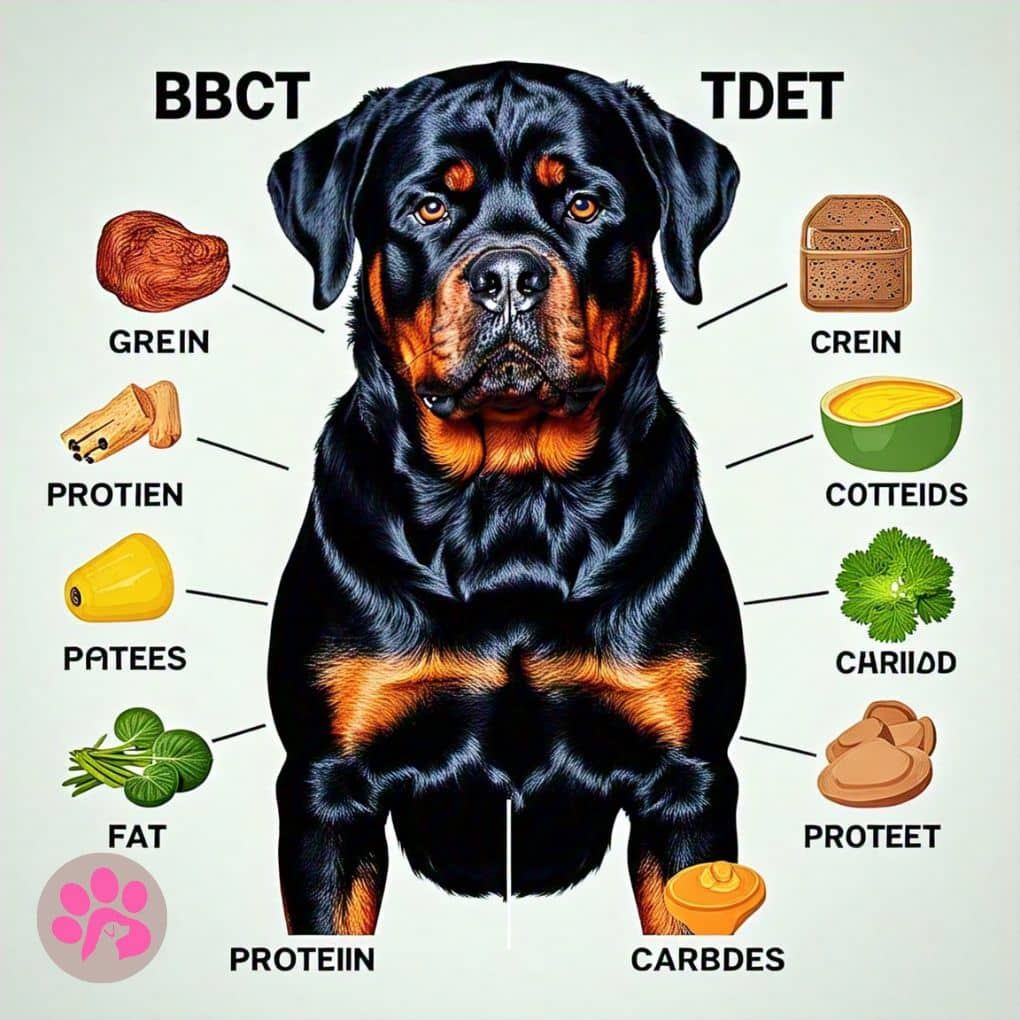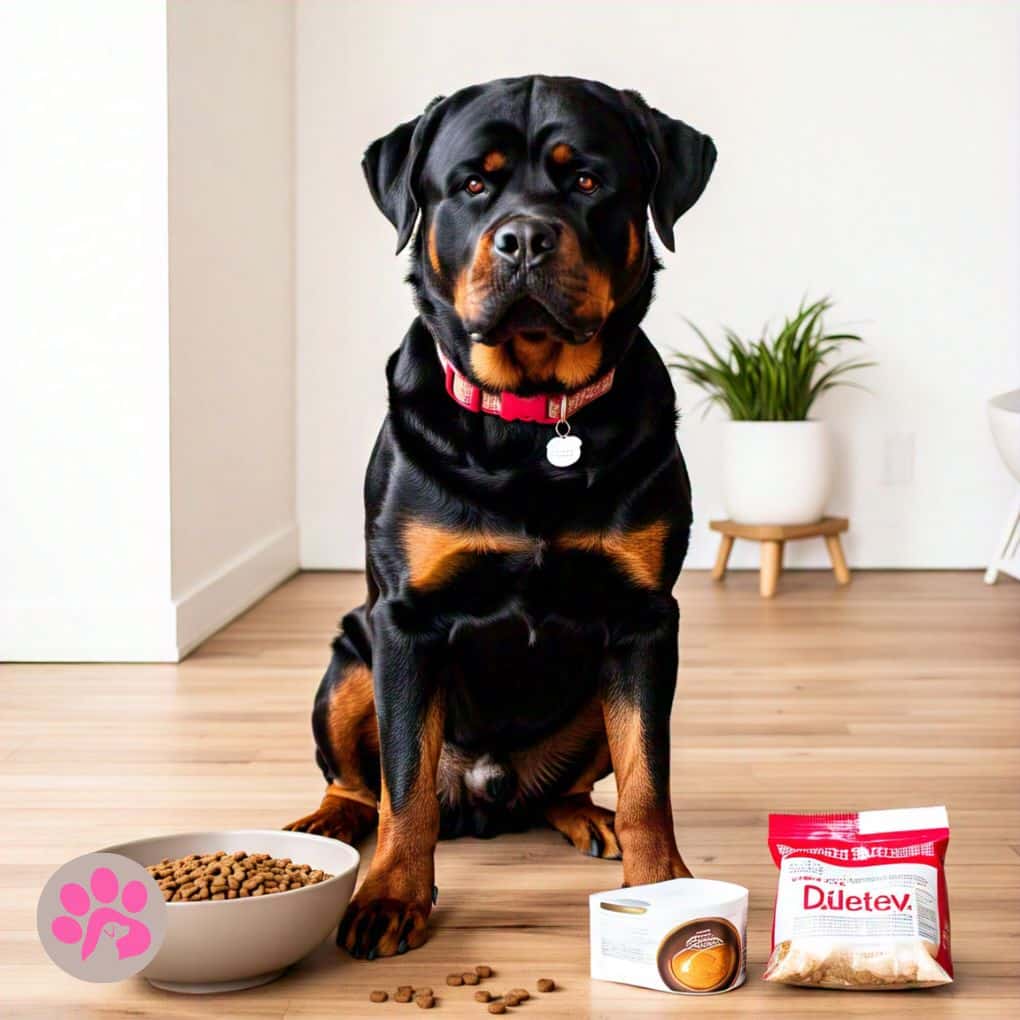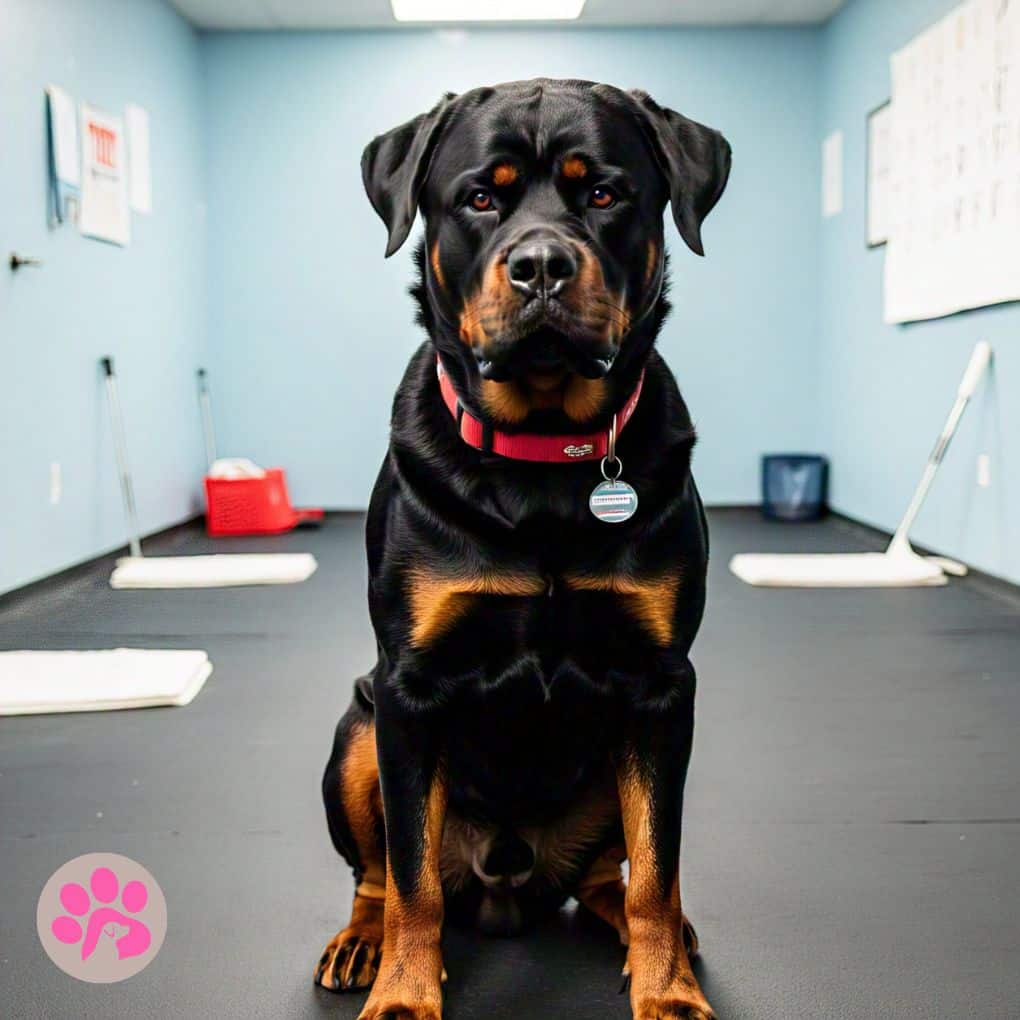Rottweilers are strong, sure of themselves, and very interesting. As long as Rottweilers are in your yard, on the couch, or making you laugh with their silly antics, life will stay interesting. But like any other breed, what’s in their bowl is the most important thing you can do to keep them healthy. No matter how old your Rottie is, what you feed them can make a huge difference in how healthy they are, how happy they are, and how much energy they have.
There’s more to picking the right food for your Rottweiler than just picking up the first bag that says “premium.” Rottie dogs are big and strong, so they have different food needs than Chihuahuas or Poodles. What works for a Chihuahua or a Poodle won’t work for a powerhouse like a Rottie. To keep up their active lifestyle and stay in great shape, they need to eat a balance of protein, healthy fats, and important nutrients.
We’ll talk about the best foods for your Rottweiler at all stages of its life, from puppyhood to old age. These tips will help you feed your Rottie the best food possible, no matter how long you’ve had them or how new you are to owning one. Get a treat; it doesn’t matter if it’s for you or your dog. Let’s start eating!
1. Puppy Rottweiler Nutrition: Fueling the Early Days
Why Puppies Need Special Care
Puppy Rottweilers grow up quickly, sometimes too quickly for their own safety. It might be cute to see them grow from little fluffy balls to small tanks, but their fast growth can cause joint and bone problems in the future. That’s why it’s so important to give your dog the right food. Look for a good large-breed dog food that is made to help them grow steadily without giving them too many calories.

The calcium-to-phosphorus ratio in these formulas is usually very well balanced, which is important for good bone growth. Generic puppy foods that aren’t made for big breeds should be avoided because they can speed up growth, which is hard on joints that are still growing. Even though Rottweilers are tough, they need a strong base to grow into their big, beautiful selves.
Protein Power and Playtime Fuel
Rottweiler puppies have a lot of energy, so their food should match that. To build muscle and keep it active, you need to eat a lot of high-quality protein, like chicken, beef, or fish. To help their bodies grow, dog food should have at least 22 to 25 percent protein.
Do not forget about good fats! DHA is an omega-3 fatty acid that is very important for brain growth and learning. This means that your dog will pay more attention during training (or at least that butterfly in the backyard will not bother him as much). Try to find baby food that has fish oil or other natural omega-3s in it.
2. Adult Rottweilers: Maintaining Muscle and Energy
Balancing Protein and Calories
As soon as your Rottweiler becomes an adult, their food needs will change. Adult Rottweilers are strong and busy dogs that need a diet high in high-quality protein to stay strong. Try to find dog food that gets at least 20–25% of its nutrients from real meat. Foods that show “meat by-products” or fillers like corn as the main ingredients are not good for your Rottie.

You’ll also have to keep an eye on how many calories they eat. People love Rottweilers because they love food and give you those cute puppy eyes at the dinner table. It’s easy for this breed to become overweight, and too much food can make joint problems like hip dysplasia worse. Carefully watch the serving sizes and make changes as needed based on their weight and level of exercise.
Joint and Coat Care
Rottweilers as adults should eat foods that are good for their joints and coats. If your Rottie likes to be busy, look for foods that contain glucosamine and chondroitin to keep their joints healthy. Also, they need omega-3 and omega-6 fatty acids to keep their skin and hair healthy and shiny.
If you like making your own meals, don’t forget to add healthy fats, lean proteins, and cooked veggies. But talk to your vet to make sure that the meals you make yourself meet all of their food needs. To keep your Rottie healthy, strong, and ready for any journey, remember.
3. Senior Rottweilers: Aging Gracefully
Adjusting to Slower Days
As your Rottweiler enters their senior years (usually around 7-8 years old), their activity levels will naturally start to decline. While they might not be sprinting around the yard like they used to, they’ll still need a balanced diet to stay healthy. Senior dogs require fewer calories to prevent weight gain, but they still need high-quality protein to maintain muscle mass.
Look for senior dog food formulas that are lower in calories but rich in nutrients. These diets often include added fiber to support digestion and antioxidants to boost their immune system. A slower metabolism doesn’t mean your Rottie needs less care; it just means their nutritional needs evolve as they age.
Supporting Joint and Cognitive Health
Joint health becomes even more critical as Rottweilers age. Senior diets fortified with glucosamine, chondroitin, and omega-3 fatty acids can help reduce inflammation and keep them moving comfortably. Additionally, some senior dog foods include brain-boosting ingredients like DHA and EPA, which may help delay cognitive decline.
Consider splitting their meals into smaller portions throughout the day to make digestion easier. And don’t forget about hydration; older dogs are more prone to dehydration, so make sure fresh water is always available. With the right care, your senior Rottweiler can enjoy their golden years to the fullest.
4. Special Diets and Treats
Raw vs. Kibble: What’s Best?
Dog owners are very divided on the issue of whether to feed their dogs raw food or kibble, and there is no clear-cut answer. Rottweilers can eat more naturally if they eat raw foods, which usually include raw meat, bones, and vegetables. But they need to be carefully planned to make sure they’re safe and full of nutrients. If your raw food diet isn’t set right, it can leave you with deficiencies or even health risks like salmonella.

On the other hand, kibble is handy, cheap, and simple to store. Many good brands have choices that are made especially for large breeds, so you can be sure that your Rottie gets everything they need without having to worry about making their own food. Talk to your vet if you’re not sure what to do. They can help you make the best decision for your dog’s health and way of life.
Healthy Treats for Training and Bonding
Giving your Rottweiler treats is an important part of teaching and getting to know it, but you should be careful not to give too many. You can eat healthy treats like carrots, small pieces of cooked chicken, or store-bought sweets made with natural ingredients. Take a pass on treats that have a lot of sugar, artificial tastes, or fillers.
If your Rottie has trouble keeping the weight off, try giving it low-calorie treats or cutting up bigger treats into smaller pieces. Don’t forget that the act (and the taste!) are more important than the size of the snack.
Conclusion
When you feed your Rottweiler, you should do more than just keep their bowl full. They should also get the nutrition they need to do well at all stages of their lives. From when they are puppies and full of energy to when they are old and calm, what they eat has a big effect on their health and happiness.
You can help your Rottie live a long, healthy life by feeding them high-quality food that is the right amount of calories and protein for their age and level of exercise. An overweight Rottweiler is not happy. They will wag their tail when they see food, play fetch, or just relax on the couch.
Whenever you fill their bowl, know that you’re not just giving them food. You are rewarding a dedicated friend who will give you endless love and happiness in return. And, really, isn’t that worth all the work?
